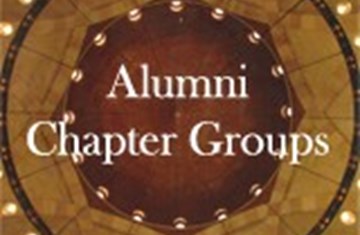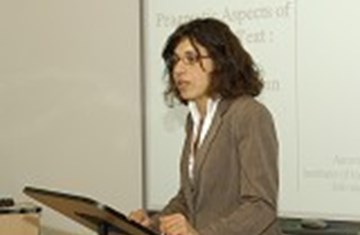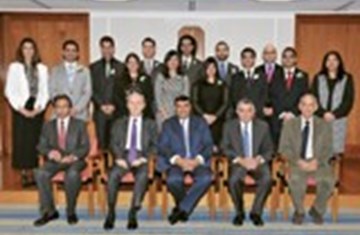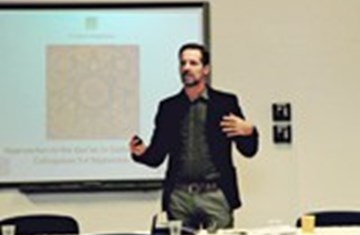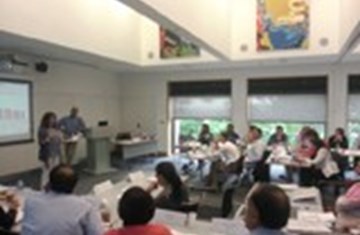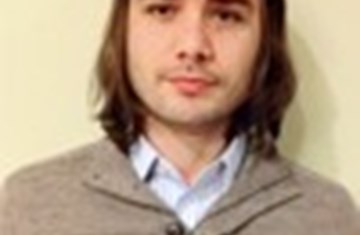IIS Scholars Attend Launch of Diwan-i Qa’imiyyat
Dr Jalal Badakhchani and Professor Hermann Landolt were special guests at a book launch programme held in Tehran towards the end of 2011, dedicated to the 13th century Diwan-i Qa’imiyyat (Poems of the Resurrection) by Hasan Mahmud Katib. The launch was held at the Centre for Research of the Written Heritage (Markaz Nashr-i Miras-i Maktoob).
Dr Badakhchani, the editor of the volume, discussed how the publication of Qa’imiyyat has to be considered an ‘event’ in the history of Persian poetry. Compiled in Alamut during the reign of the Nizari Ismaili Imam, ‘Ala al-Din Muhammad (1221-1255 CE), it is rich in the vocabulary of the Nizari Ismaili literature and tradition. Dr Badakhchani described the fascinating journey the original manuscript had seen over the centuries. Some 400 years ago, the owner of the Qa’imiyyat, fearing that enemies may destroy the book, concealed it in a crack of a wall and sealed it with plaster. The oldest manuscript of Wajh-i Din by Nasir Khusraw was also hidden in the same crack. He discussed his interest and involvement with the text, which spans decades.
In his address, Prof Landolt emphasised that the Ismailis, especially after the proclamation of the doctrine of resurrection (qiyamat), focused their attention on the production of poetic works, primarily in Persian. As an example, he cited Hujwiri’s Kashf al-Mahjub, not to be mistaken with the Kashf al-Mahjub of Sijistani. The reason for preferring Persian to Arabic, explained Professor Landolt, was that they wanted to be in close contact with the people and this was better achieved by using Persian poetry. According to Prof Landolt, a poet needs to communicate with the soul and this is possible through poetry. According to him, when Hujwiri speaks of shari‘a he means material relations and when he speaks of haqiqah he is referring to spiritual relations. Prof Landolt also talked of the Ismaili belief that one of the meanings of resurrection is haqiqah, a concept mentioned on many occasions in the Diwan-i Qa’imiyyat.
In his closing remarks, following a question and answer session, Dr Badakhchani expressed his gratitude to Prof Kadkani, Dr Farhad Daftary, Dr Irani, Mr Baher and the family of Mr Safi’ Rezaei and Mulla Mortaza Barzgar.

